How to make your washing machine last longer and need fewer repairs
Here’s how you can extend your washing machine's lifespan

Of all your large appliances, your washing machine is most likely to malfunction, according to Allstate Protection Plans. This can be a very frustrating situation because you need to do your laundry elsewhere while you wait for a professional to evaluate your washer and call in any necessary parts — which can sometimes take weeks.
Because malfunctions are so commonplace, even in the best washing machines, you need to make the extra effort to keep your washer well-maintained. That’s why we’ve pulled together seven tips to increase your washer’s lifespan. Some of these changes are so small they require next-to-no effort and can really make a difference, whether you’ve got a front load or a top load washer.
We have also drawn up a list of 15 things you should never put in a washing machine, to help you preserve your machine even longer. Also, don't make this one mistake when doing your laundry!
Here's what to do if you've noticed your washing machine shaking violently as it tries to spin, or how to fix a shake washing machine. And if your washer is acting up, here are 7 signs that you need a new washing machine. You can also save money by these 8 ways to ditch the clothes dryer and save energy.
7 tips to make your washing machine last longer
1. Clean it regularly — Believe it or not, your washing machine needs cleaning to keep it in tip-top shape. With residual water sitting in the drum after each cycle, it’s all too easy for mold and mildew to build up, particularly around the gasket if you have a front load washer.
Your washer will also need descaling as part of the cleaning process, to get rid of any limescale which may have formed in the pipes. Cleaning doesn’t take long; if you need guidance on how to clean a washing machine, we’ve got you covered. We also recommend leaving the door and detergent drawer open after each cycle to help the drying process and prevent mold and mildew.
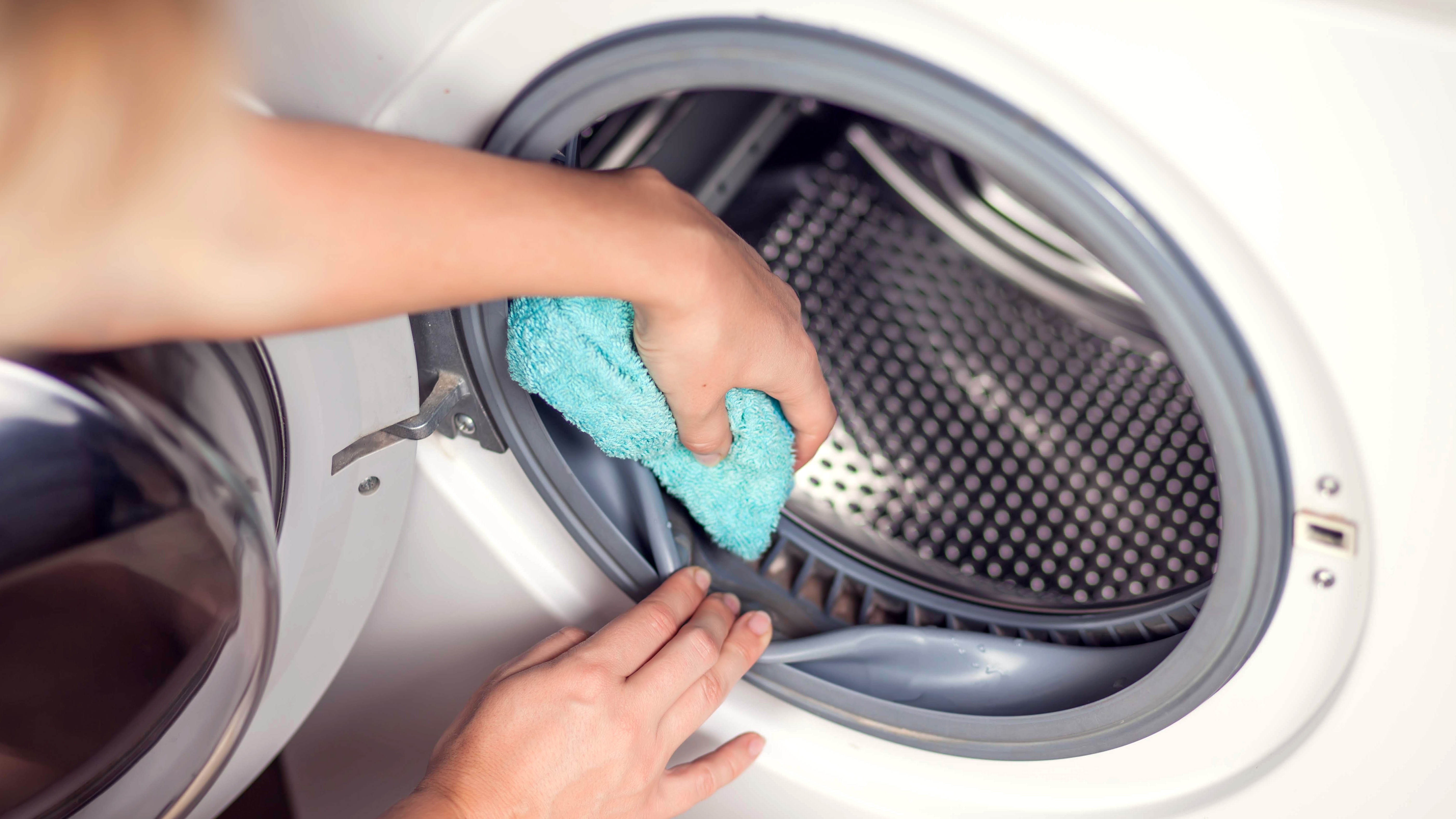
2. Don’t overload it — While you should make the most use of the space within your washer, you don’t want to force the load in there. Overloading the drum will cause the appliance to work harder and can put unnecessary stress on the bearings.
Sign up to get the BEST of Tom's Guide direct to your inbox.
Get instant access to breaking news, the hottest reviews, great deals and helpful tips.
In worst case scenarios, it can fail to spin the load at the end of the cycle, and can even catch and damage your clothes between the door seal and the drum.
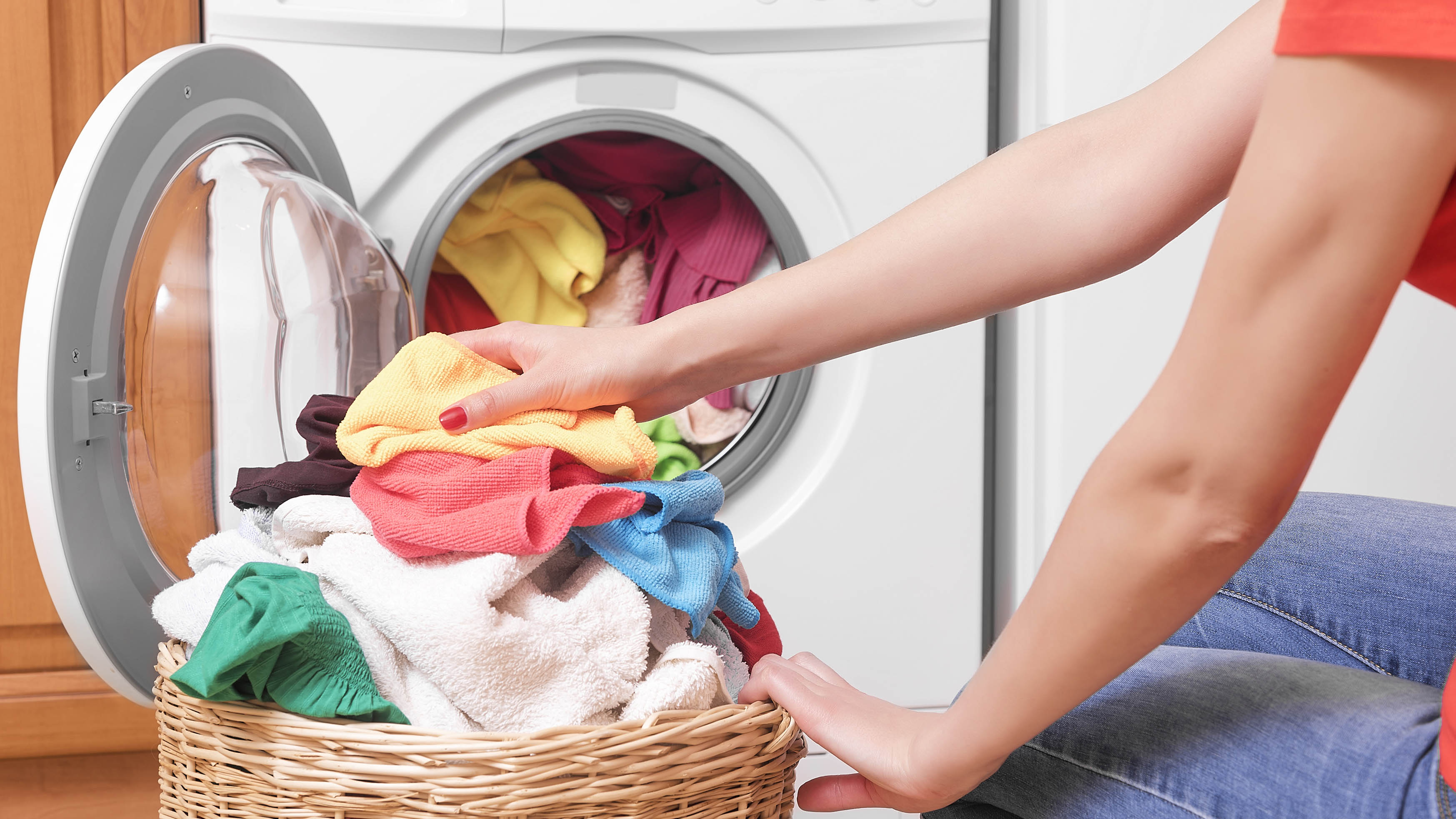
3. Balance out the load — Likewise, if you’re only putting one or two items in the drum, such as a pillow or a blanket, make sure you balance out the weight with some towels. If the weight isn’t spread out, the washer will struggle to spin and will have to work much harder through the cycle, leading to wear and tear on its components.
If your pillows need cleaning, but you’re not sure what to do, check out our guide on how to wash a pillow.
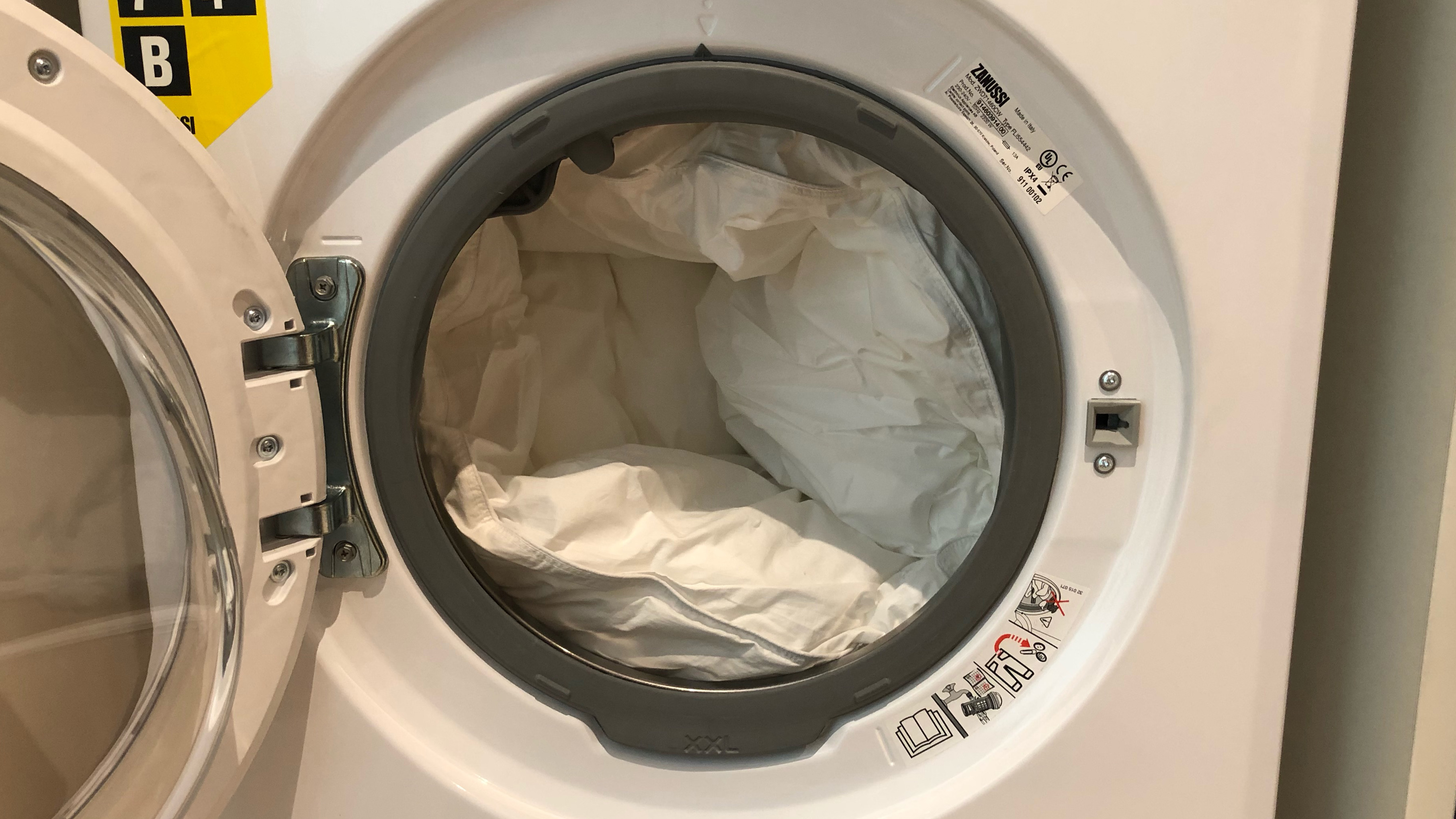
4. Remove wet clothes immediately — It’s all too easy to forget about your wash and leave it sitting in the drum for hours after it’s finished. But, you must break this habit. Not only does it make your clothes smell bad, it’s actually encouraging the growth of mold and mildew within the appliance.
If you can’t hear the audible noise once the cycle has finished, you can always set a timer on your phone when you start the wash. Or if you’re lucky enough to own a smart washer, it may be able to send you a notification that the wash has finished via its app.

5. Empty out pockets — Most of us are guilty of leaving some spare change in our pockets prior to washing the item. The problem is that loose heavy articles, such as coins and keys, can cause some serious damage in your washer if left unchecked.
The solution is simple: always turn pockets inside out before you load them in the washing machine. If you’ve forgotten this cardinal rule in the past, you can always remove any rogue items via the drain pump filter on a front load washer.
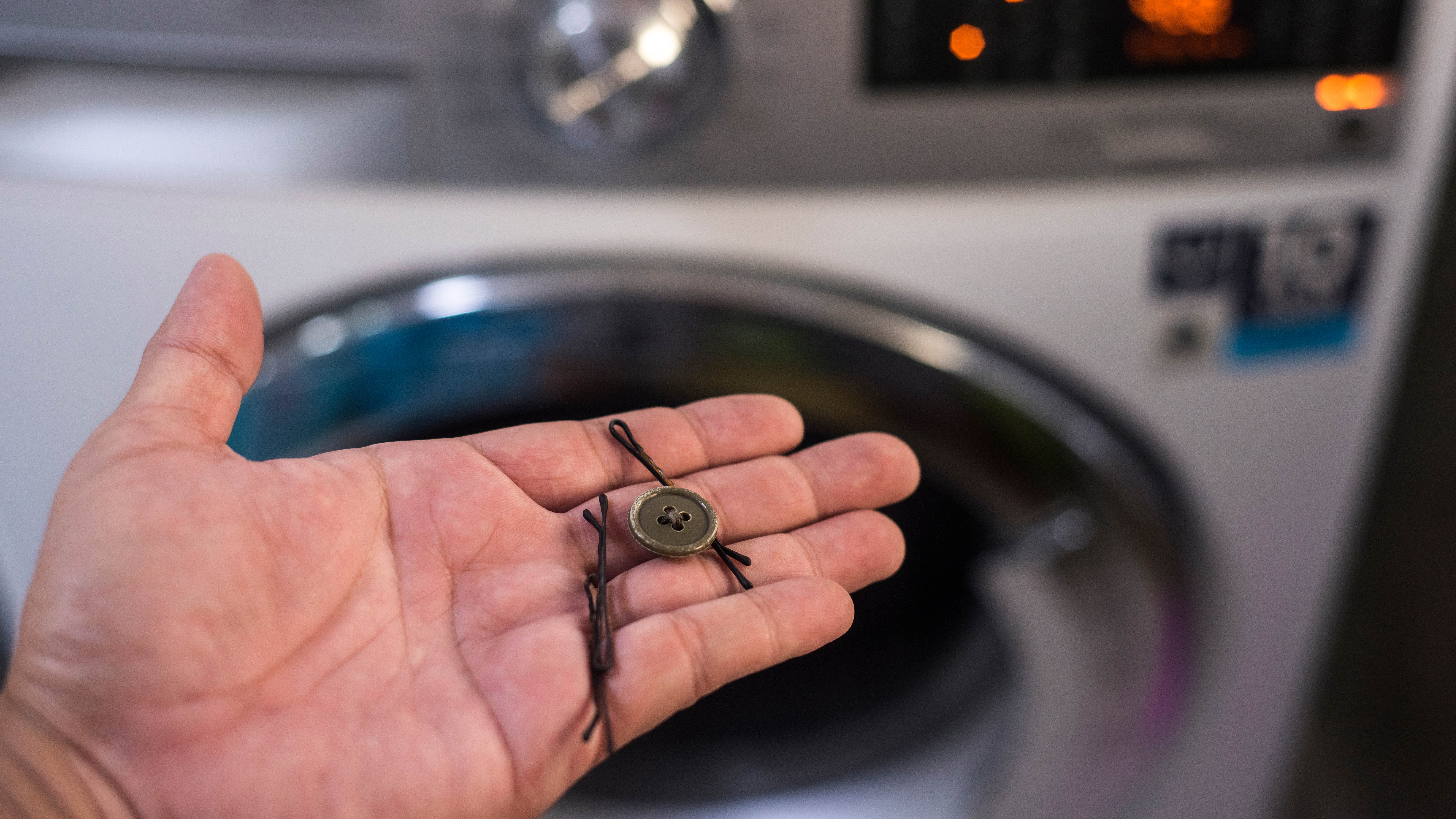
6. Watch out for bra wires — Bras are a tricky thing to clean. You should always check the care label because some will be hand-wash only. Those that can go in the machine, should be placed in a laundry bag, such as these Mesh Laundry Bags ($8.99, Amazon). Otherwise, the wire can come loose and can wreak all sorts of havoc.
It can damage clothing, puncture the sump hose or it can even make its way to the pump impeller and cause a blockage. That’s why you should take care when washing bras — use a gentle cycle with a low spin speed.
Bras are also one of the items you should never throw in the dryer. Check out 10 things you should never put in the dryer for more info.
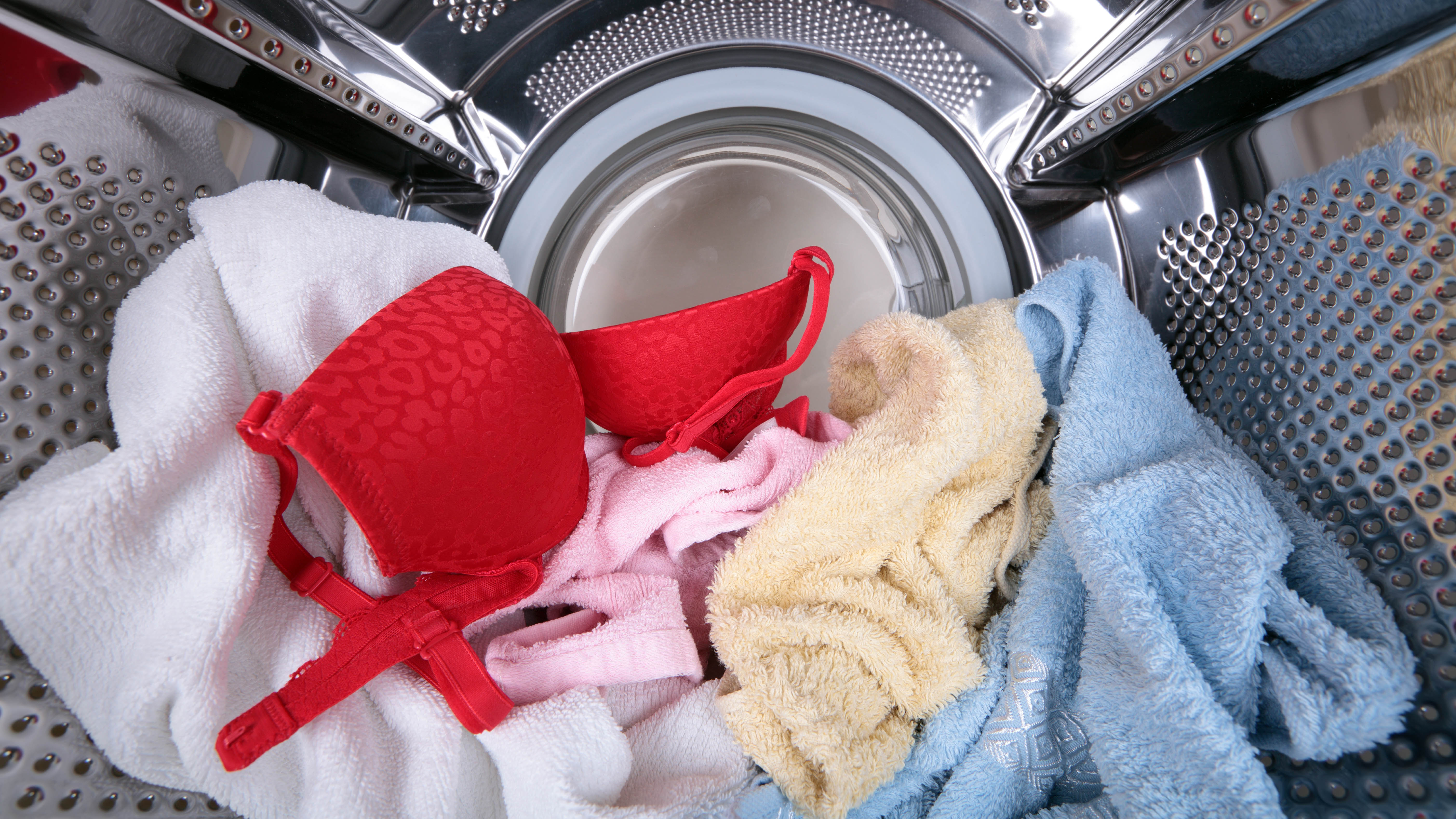
7. Use the right amount of detergent — It can be tempting to overdose on detergent when you’re dealing with tricky stains, but try to resist. Using an excess of detergent won’t make your machine more effective at cleaning. It will only cause additional suds which your washer will have to work harder to remove.
If you’re dealing with tricky stains, pre-treat them instead using a brand such as OxiClean Max Force 5 in 1 Power Laundry Stain Remover Spray ($14.25, Amazon).
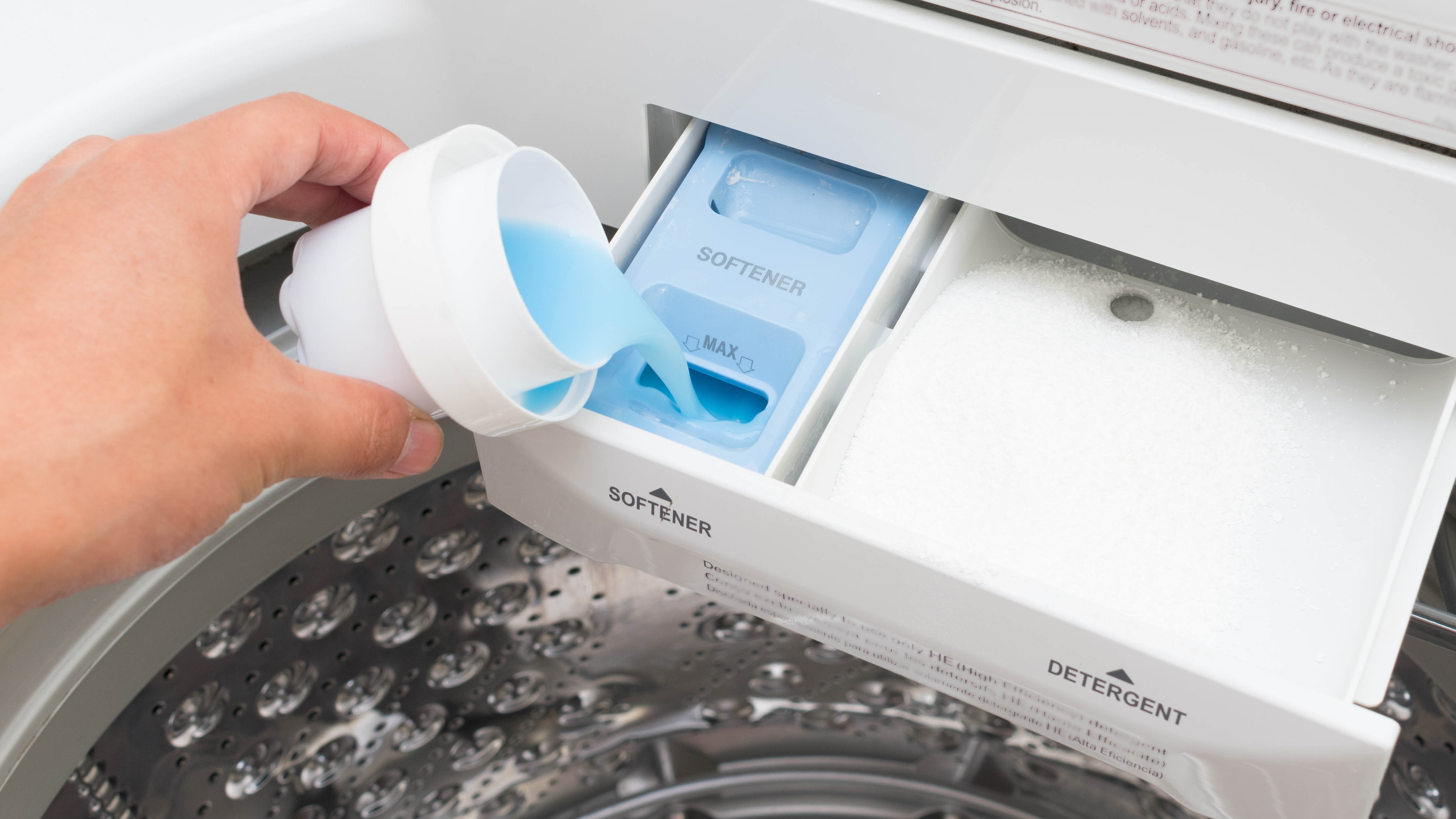
For more laundry-related tips, be sure to check out our guides on how to remove blood stains and how to remove oil stains. Here's when you should and shouldn't use the quick wash setting on your washer, and how to fold a fitted sheet in less than a minute.
And, if you're in the market for a new appliance, be sure to take a look at the best washer and dryer sales and 11 things to look for when buying a washing machine.

Katie Mortram used to be a Homes Editor for Tom's Guide, where she oversaw everything from kitchen appliances to gardening tools, as well as smart home tech. Specializing in providing expert advice for cleaning and home manintenance, she now works as Household Advice Editor for Good Housekeeping.
